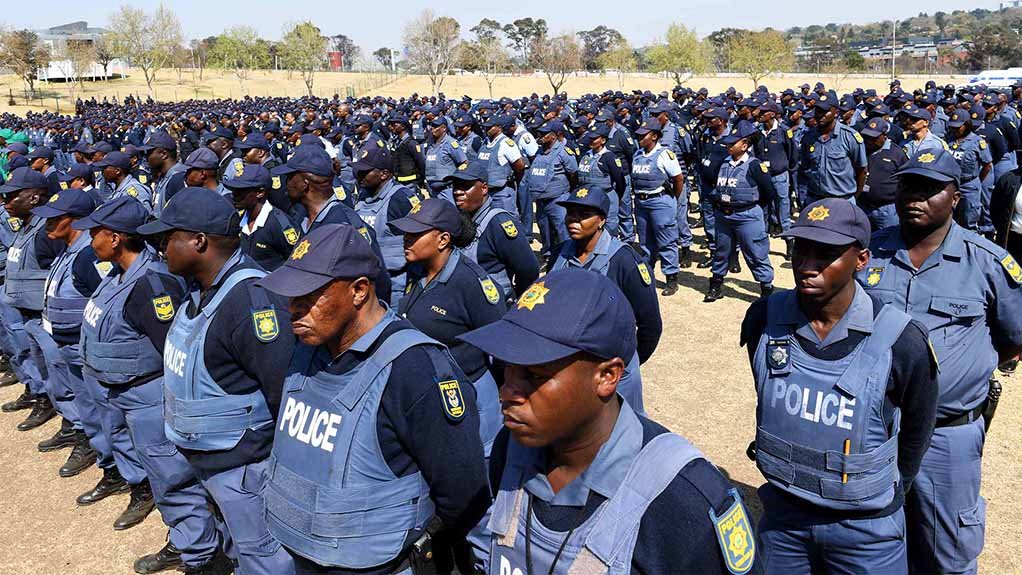After the murder of 130 people in the last week of September, the Western Cape is receiving the "lion's share" of policing resources in the country, according to Police Minister Bheki Cele.
Two police officers were among the 130 people killed - the highest murder statistic for the year, according to Police Oversight and Community Safety MEC Reagen Allen.
Cele brief the media last week on the "ruthless" killings that occurred from 24 to 30 September, and said 2 600 new recruits were earmarked for deployment to the province after their graduation in two months.
But experts believe more boots on the ground is no guarantee of a reduction in violent crime.
Crime expert Guy Lamb said the government's ambition to halve the number of reported murders meant resources needed to be concentrated in areas where they would have the biggest impact.
Violent crime, according to Lamb, was concentrated in around 15% of police precincts, and in the Western Cape, half of all the murders that take place were in nine precincts, clustered closely together on the Cape Flats.
"The Western Cape is disproportionately represented in the top 30 stations in our crime statistics, especially for murder," he said, adding, "To bring down the murder rate, the police need to focus on high-crime areas, and because the Western Cape has so many high-crime areas compared to other provinces, it strategically needs more resources."
Lamb added that the type of resources dedicated to the province also mattered.
"If the new recruits are just being sent to police stations, it won't make as much of an impact as if they're trained for dedicated task teams to address gangsterism and organised crime," he said.
Crime Hub manager at the Institute for Security Studies, Lizette Lancaster, said it was essential those joining the police service's ranks had the skills necessary to reduce crime, which is why police need to focus on recruiting and training detectives.
"There have been turnaround strategies in place to help with the issue of detective services for years, but we're still seeing that skilled people are leaving or retiring, resulting in a lack of mentorship for new recruits," she said.
"While deploying recruits in under-resourced areas is a step in the right direction, we also need members who have the skill to make evidence-informed arrests and investigate cases in a way that will ensure there is enough evidence for them to be prosecuted in courts."
Lancaster added that the new recruits needed to be "service orientated" to build trust with communities.
"Not every community sees the police as trustworthy, so the new recruits will have to build trust and relationships that allow for information to flow to the police. Very often, communities know who the suspects are, but they will only share this information if there is trust," she added.
Following the spate of murders in the province, Cele stressed this week that a decision had been taken to saturate affected areas on the Cape Flats.
"The reinforcement of policing interventions includes the capacitation of the Anti-Gang Unit and the broader detective capacity in the province, which is in line with the national programme of re-enlistment of detectives back in the SAPS," he said.
"Over and above these national interventions, an additional 2 600 more SAPS trainees who are currently training in police colleges will be much-needed force multipliers when they graduate in the next two months," he added.
In turn, Allen said the deployment of police should be "based on data, evidence and where the murder and overall crime rate is the highest".
He said the precincts in which the recent spate of murders occurred were "severely under-resourced".
"Gugulethu has a police-to-population ratio of 1:874, Delft 1:784, Harare 1:773, Kraaifontein 1:740, Mfuleni 1:581, Ravensmead 1:630, and Woodstock 1:319. These continued and unacceptable police-to-population ratio levels are part of the reasons why SAPS is unable to be fully effective in combatting crime in these areas," Allen said.
According to the SAPS Annual Performance Plan 2022/2023, the actual human resource gap (the ideal human resource demand versus the actual human resources) is 11 250 members in the Western Cape.
The plan showed that the province with the largest gap was Mpumalanga, with 52.5%, followed by Limpopo with 49.6%.
Allen said the Western Cape had a vacancy average of around 10%, "which is not ideal at all".
"In December 2022, the province received 1 000 new officers, but more than 500 of these went to the Public Order Policing service," he said.
Allen added that the "shortcomings of the SAPS" were among the reasons for the rollout of the Western Cape Safety Plan, which includes the strategic deployment of Law Enforcement Advancement Plan (LEAP) officers to the 10 areas in the province with the highest murder rates.
These precincts include Delft, Gugulethu, Harare, Khayelitsha, Kraaifontein, Mfuleni, Mitchells Plain, Nyanga, Philippi East, and Samora Machel. Other high-crime areas where they are deployed are Atlantis, Bishop Lavis and Hanover Park, along with Lavender Hill, Steenberg and Grassy Park.
Allen said the deployment of LEAP officers in some areas represented almost 50% of the entire SAPS deployment.
"Our LEAP officers are consistently showing that they can make a difference in the face of chronic under-resourcing by SAPS," he said.
EMAIL THIS ARTICLE SAVE THIS ARTICLE
To subscribe email subscriptions@creamermedia.co.za or click here
To advertise email advertising@creamermedia.co.za or click here











